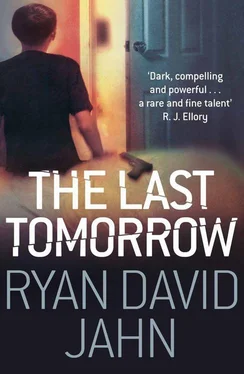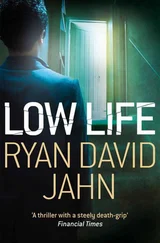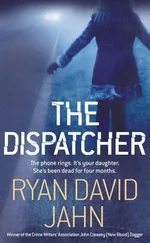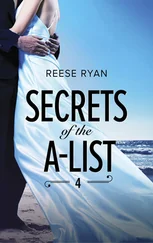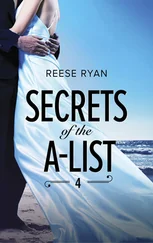Ryan Jahn - The Last Tomorrow
Здесь есть возможность читать онлайн «Ryan Jahn - The Last Tomorrow» весь текст электронной книги совершенно бесплатно (целиком полную версию без сокращений). В некоторых случаях можно слушать аудио, скачать через торрент в формате fb2 и присутствует краткое содержание. Год выпуска: 2012, ISBN: 2012, Издательство: Macmillan Publishers UK, Жанр: Триллер, на английском языке. Описание произведения, (предисловие) а так же отзывы посетителей доступны на портале библиотеки ЛибКат.
- Название:The Last Tomorrow
- Автор:
- Издательство:Macmillan Publishers UK
- Жанр:
- Год:2012
- ISBN:9780230766501
- Рейтинг книги:4 / 5. Голосов: 1
-
Избранное:Добавить в избранное
- Отзывы:
-
Ваша оценка:
- 80
- 1
- 2
- 3
- 4
- 5
The Last Tomorrow: краткое содержание, описание и аннотация
Предлагаем к чтению аннотацию, описание, краткое содержание или предисловие (зависит от того, что написал сам автор книги «The Last Tomorrow»). Если вы не нашли необходимую информацию о книге — напишите в комментариях, мы постараемся отыскать её.
The Last Tomorrow — читать онлайн бесплатно полную книгу (весь текст) целиком
Ниже представлен текст книги, разбитый по страницам. Система сохранения места последней прочитанной страницы, позволяет с удобством читать онлайн бесплатно книгу «The Last Tomorrow», без необходимости каждый раз заново искать на чём Вы остановились. Поставьте закладку, и сможете в любой момент перейти на страницу, на которой закончили чтение.
Интервал:
Закладка:
Finally she finds it within herself to speak.
‘Find what you’re looking for?’
4
Barry turns around to see a doe-eyed brunette woman standing in an open doorway. She wears a wet nightgown which clings to her skin, the shape of her breasts and her hips clearly visible beneath its thin fabric. She holds a metal rod in her hands like a baseball bat.
He blinks at her, unbelieving. The house was supposed to be empty. Seymour promised him it’d be empty. He knocked and there was no answer. So why is someone standing across the room from him with a weapon gripped in her fists?
‘What?’
‘Did you find what you were looking for?’
She takes a step forward. Barry takes a step back.
‘I think there’s been a misunderstanding.’
‘Misunderstanding? Did you accidentally break into my house?’
Barry cannot think of a response. He’s not a stupid man, but he feels stupid right now. His mind has failed him. He wants to run, but she’s standing between him and his way out of here. And he still hasn’t found any pictures. It could be that there aren’t any. It could be that Seymour now has them all. But he’d feel better about coming to that conclusion if he had time to finish searching.
The woman takes another step toward him.
He has to get out of the house. If he gets out of the house and gets to his car he’ll be fine. He can forget about it. The pictures are Seymour’s problem, not his own, and he can walk away without a worry. He stole nothing. No one will investigate. She probably won’t even call the police. If he gets away he’ll be fine.
Goddamn it, the house was supposed to be empty.
‘You better say something.’
‘The. . the door was unlocked.’
‘The door was unlocked?’
She raises the pole in her hands.
He swallows, glances from her to the doorway. There’s a moment during which neither of them moves. Then he runs for it.
As he rushes past her she swings, bringing the pole down fast at a diagonal.
It connects with the side of his head, sending a great ringing through the hollows of his skull, and sending him to the floor. He blinks, disoriented, and rolls over. He looks up to see the woman stepping toward him, brow furrowed, arms swinging again. The pole comes chopping down toward his face like an axe. Once, against the forehead. Twice, he reaches out and manages to catch it. There’s a terrible stinging in the palm of his hand, sharp and somehow acidic, like a slap. He ignores it and pulls the pole from her hand, yanking her forward with it till she loses her grip. He gets to his feet.
Fear flickers in the woman’s eyes and it’s her turn to take a step back.
It does something to him, the fear visible on her face. As does her subtle retreat. It erases all thought of leaving. He could now simply turn and walk away, and everything would be fine. There may or may not be more pictures, but the house was supposed to be empty. It’s no longer his responsibility.
Except the woman backing away pulls him toward her, as if there were some invisible cable connecting them to one another. She moves back so he moves forward. It’s as simple as that.
‘Where are they?’
‘Where. . where are what?’
‘The pictures.’
TWENTY
1
Lou steps off an elevator and walks down a corridor that stinks of the cigarettes smoked behind the doors lining the walls on either side of him. He can see a cop standing in front of the door he wants to walk through. The cop is about twenty-three years old and wears a heavily starched uniform. His red hair is cut short and freckles dot his cheeks. His hands are clasped behind his back and he stares straight ahead at the wall, mouth a soggy teeter-totter drooping over his chin. Lou’s guessing this young cop used to be a marine. It’s in his posture. His older brother saw combat, has stories about storming the beach at Normandy, battling on vast fields of blood, bayoneting teenage warriors and feeling no remorse, for it was us or them, and we had God on our side. He’s unhappy that he was too young to join before the end of World War II and was unlucky enough to be discharged before the Korean War began. Probably he left to join the police force after two years at Camp Gordon, Georgia, or some other place equally as boring, hoping for action in the city if not on the battlefield. He wants to taste blood. That’s what Lou sees as he walks toward this young cop. That’s what he sees, but he hopes he’s wrong, because if he’s right it might mean trouble.
He approaches the cop, walking casually, hands in pockets. The hand in his right hip pocket grips the cool handle of a switchblade knife. If things had gone to plan, there’d be an identical knife in the milkman’s apartment. Evelyn bungled it, but he still wants to use the knife here; a gunshot will give Teddy Stuart too much warning. The cop looks toward him without moving his head. His eyes shift left, that’s all. Lou smiles at him and gives him a small nod. The cop does not return Lou’s smile.
Instead he says, ‘I think you’re on the wrong floor, sir.’
‘No, it’s all right, I’m just going -’
And then Lou’s upon him. He moves quickly, pulling both hands from his pockets simultaneously. With the left he reaches out and grabs an ear and pulls down, bending the cop forward. With the right, before the man can recover, before the hat which has fallen from the cop’s head has even hit the floor, he flicks open the switchblade and plants it in the back of the cop’s neck, slamming it straight down, aiming for the spinal cord. The cop crumples to the ground, unsheathing the blade now dripping with blood, nothing remaining of him but a pile of blue laundry, no sound escaping him but the single grunt he made when Lou grabbed him by the ear.
His blue hat lies on the floor a few feet away.
A strange chuckle escapes Lou’s throat. He’d thought the cop might be trouble but he wasn’t any trouble at all. If the police were going to use such an incompetent to protect Teddy Stuart they should have just left him unattended. It would have saved a life, and while Lou doesn’t get emotional about murder, not at this point, he sees no reason to commit the act unless it’s necessary. It is, after all, a messy and dangerous affair. Especially when the victim’s a cop.
He wipes the blade off on the cop’s uniform and puts it away. Later he’ll throw it into the ocean and have an ice cream at Santa Monica pier. But for now he must get on with business. He reaches into his coat pocket and grabs a pair of leather gloves. He slips his hands into them, removes the milkman’s revolver from his waistband, thumbs back the hammer.
He pulls back with his right foot and kicks. The door-jamb cracks but doesn’t give completely; he kicks again, it splinters, and the door swings open. He grabs the cop by the back of his collar and drags him into the room, which appears to be empty. No sign of Teddy Stuart. He dumps the cop just inside the door. Then he grabs the hat from the hallway floor and throws it on top of the corpse. It flips off the body and onto the carpet, where it lies upside down. He closes the door. It won’t latch, but at least it’ll provide a temporary barrier if Teddy Stuart makes a run.
‘Now,’ he says, taking a step deeper into the room, ‘if I were a rat, where would I hide? Under the bed, maybe.’
He leans down and looks. There’s nothing there but floor.
‘Maybe the armoire,’ he says. ‘Rats like the dark, don’t they?’
2
Teddy sits in bed wearing nothing but pants and an undershirt. He has a couple days of beard-growth on his face. He’s been stuck in this hotel room for four days and each day he feels less inclined to groom than he did the day before.
Читать дальшеИнтервал:
Закладка:
Похожие книги на «The Last Tomorrow»
Представляем Вашему вниманию похожие книги на «The Last Tomorrow» списком для выбора. Мы отобрали схожую по названию и смыслу литературу в надежде предоставить читателям больше вариантов отыскать новые, интересные, ещё непрочитанные произведения.
Обсуждение, отзывы о книге «The Last Tomorrow» и просто собственные мнения читателей. Оставьте ваши комментарии, напишите, что Вы думаете о произведении, его смысле или главных героях. Укажите что конкретно понравилось, а что нет, и почему Вы так считаете.
